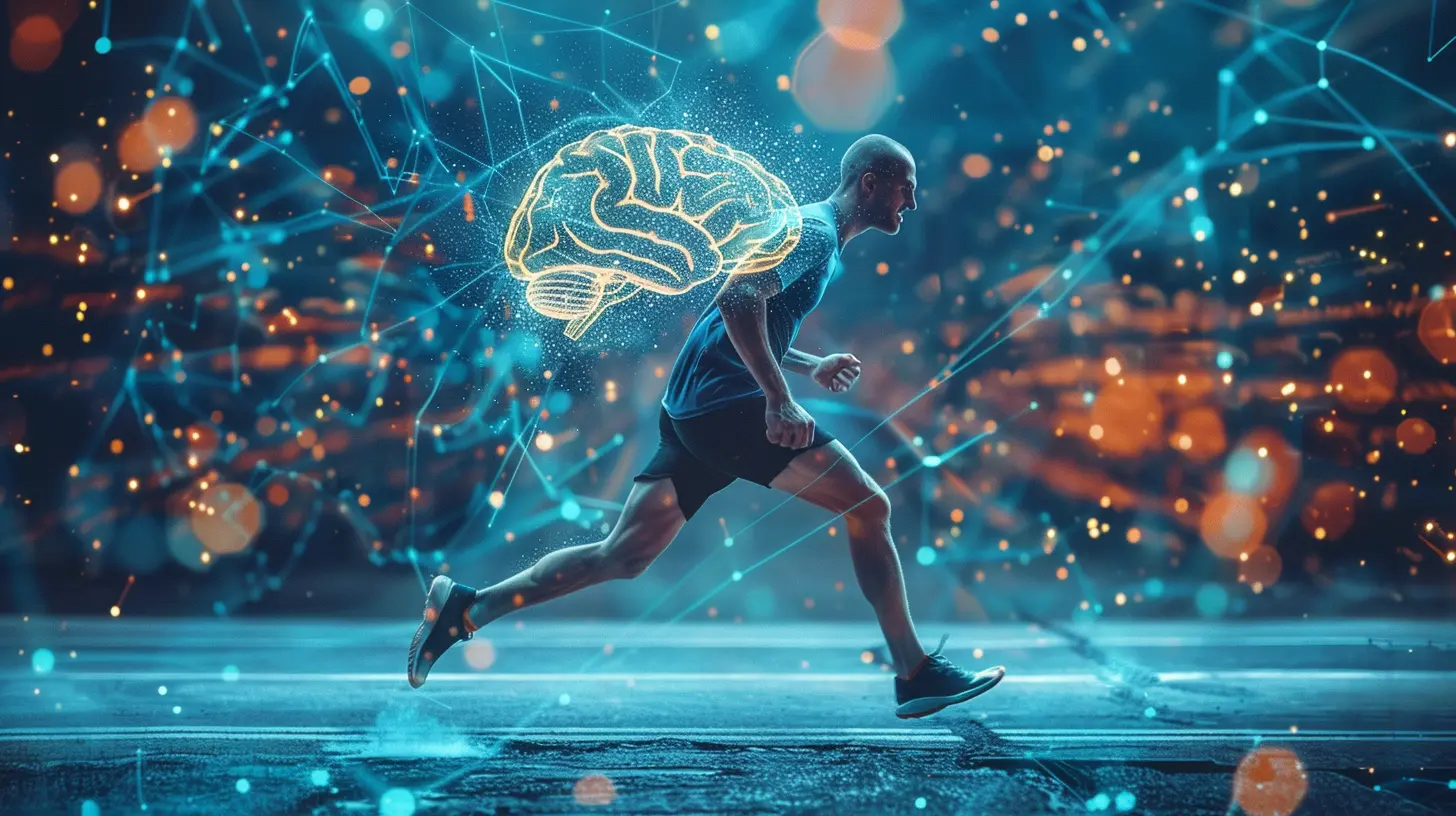The Mind-Body Connection: How Exercise Boosts Mental Health
28 December 2024
We all know exercise is good for our waistline, but did you know it can do wonders for your mind too? Yes, you read that right. Exercise isn't just about sculpting abs or shedding extra pounds—it's a secret weapon for boosting mental health. In fact, your mind and body are more connected than you might think. Imagine them as two best friends who thrive when working together. When you take care of one, the other says, "Hey, thanks!"
So, grab your favorite sneakers, and let’s dive into how exercise transforms not only your body but also your brain. By the end of this, you’ll see why a quick workout might just be the key to turning a bad day into a good one.
What Is the Mind-Body Connection?
Before we get into the nitty-gritty, let’s break down what the "mind-body connection" actually means. In simple terms, it's the idea that our physical body and mental state are closely linked. Think about the last time you felt stressed—did your shoulders tense up? Or when you were excited, did you feel butterflies? That’s the mind-body connection in action.Your brain sends signals to your body, and your body sends signals back to your brain. When one feels off-balance, it affects the other. Exercise is like the middleman that keeps this connection thriving, helping you feel balanced and unstoppable.
How Exercise Impacts Mental Health
1. Exercise Reduces Stress
Let’s face it—life can be overwhelming. Between work deadlines, family responsibilities, and the never-ending to-do list, stress piles up faster than dirty laundry. Here’s the good news: exercise is like a pressure valve for your brain.When you move your body, even if it’s just a brisk walk, your brain releases endorphins—those magical "feel-good" chemicals. Endorphins are natural stress-busters, almost like your body’s own Xanax. They calm you down, boost your mood, and make the world seem a little less chaotic.
Plus, engaging in physical activity reduces levels of cortisol, the stress hormone that can leave you feeling like a frazzled ball of nerves. So, the next time you're on edge, consider swapping that extra cup of coffee for a quick jog around the block.
2. It Fights Off Anxiety
Ever feel like your mind won’t stop spinning, running circles around "what-ifs" and worst-case scenarios? Anxiety can feel like you’re stuck in a mental hamster wheel, and it’s exhausting. Luckily, exercise is a natural way to slow down that mental chatter.Activities like yoga, stretching, or even a bike ride can regulate your heart rate and breathing, which are often thrown out of whack when you’re anxious. It’s like hitting the reset button on your brain. And here’s the kicker—exercise also encourages mindfulness. When you’re focusing on your body’s movement, you’re less likely to obsess over whatever’s spiraling in your head.
3. Say Goodbye to the Blues: Beating Depression
One of the most incredible benefits of exercise is its ability to combat depression. It’s not a magic cure-all, but studies show that regular physical activity can be as effective as antidepressant medications for some people. Crazy, right?How does it work? For starters, exercise boosts serotonin, dopamine, and norepinephrine—neurotransmitters that play a big role in your mood. Think of them as little messengers that tell your brain, "Hey, life’s not so bad after all!"
And let’s not forget about the sense of accomplishment that comes with finishing a workout. Whether it’s running a mile or mastering a yoga pose, achieving small fitness goals can give you a serious confidence boost.
4. Improves Sleep Quality
Ever feel like you’re running on fumes because you haven’t had a proper night’s sleep in ages? Poor sleep doesn’t just make you grumpy—it’s a recipe for mental fog and emotional burnout. Enter exercise, your new bedtime buddy.When you engage in physical activity, your body temperature rises. Later, it drops back down, signaling to your brain that it’s time to hit the hay. Plus, working out reduces anxiety and stress, two major culprits of insomnia. Just a heads-up, though—try to avoid intense workouts right before bed, or you might end up feeling too wired to sleep.
5. Boosts Brain Power and Creativity
Want to think more clearly? Maybe you’re working on a big project and need a burst of creativity. Guess what? Exercise has been shown to sharpen cognitive function and even improve memory. Physical activity increases blood flow to the brain, which nourishes it with oxygen and nutrients.Ever notice how great ideas pop into your head during a walk or a run? That’s your brain firing on all cylinders, thanks to the movement. So, the next time you’re stuck on a problem, try a "sweat session" instead of staring blankly at your computer screen. You might be surprised by how quickly inspiration strikes.
What Types of Exercise Are Best for Mental Health?
Alright, so we’ve established that exercise is amazing for your mental well-being. But where do you start? The truth is, there’s no one-size-fits-all answer. The best exercise is the one you’ll actually stick to (and enjoy). Here are some options to consider:1. Cardio Workouts
Running, cycling, swimming, or even dancing—anything that gets your heart pumping. Cardio is especially good at releasing those feel-good endorphins.2. Strength Training
Lifting weights or doing bodyweight exercises like push-ups and squats can make you feel powerful, both physically and mentally.3. Yoga and Pilates
These low-impact workouts focus on stretching, breathing, and mindfulness, making them ideal for reducing stress and anxiety.4. Outdoor Activities
Hiking, jogging through the park, or even gardening. Being in nature has its own mental health perks, so why not combine the two?
Getting Started: Tips to Create a Habit
Starting an exercise routine can feel daunting, especially if you’re not naturally inclined to move. But don’t worry—it’s easier than you think to get into the groove. Here are some beginner-friendly tips:1. Start Small: You don’t have to run 10 miles on your first day. Even 10–15 minutes of exercise can make a difference.
2. Make It Fun: Pick activities you genuinely enjoy. Hate running? Try Zumba or kickboxing instead!
3. Buddy Up: Exercising with a friend can keep you accountable and make it more enjoyable.
4. Set Realistic Goals: Don’t aim to go from couch potato to marathon runner overnight. Baby steps, my friend.
5. Reward Yourself: Celebrate small victories, whether it’s with a relaxing bath or a new pair of workout shoes.
Why Consistency Matters
Here’s the thing: the mental health benefits of exercise aren’t a one-time deal. It’s not like you can do a single yoga class and expect lifelong happiness (although it might feel amazing in the moment). Consistency is key. Think of exercise as a mental health tune-up—it works best when it’s a regular part of your life. Even just a few sessions per week can make a noticeable difference.Final Thoughts
The mind-body connection isn’t just some fluffy concept; it’s a scientific reality. Exercise is one of the most powerful tools we have for improving mental health. It reduces stress, eases anxiety, lifts depression, and even makes us more creative and focused. The best part? You don’t need to be a fitness guru to reap the benefits. A little movement goes a long way.So, the next time you’re feeling down, stressed, or stuck in your own head, try lacing up your sneakers and getting moving. Your mind—and your body—will thank you for it.
all images in this post were generated using AI tools
Category:
ExerciseAuthor:

Angelo McGillivray
Discussion
rate this article
12 comments
Meagan Spencer
Exercise: the original mood booster! Who knew breaking a sweat could also break through mental fog?
March 22, 2025 at 3:58 AM

Angelo McGillivray
Absolutely! Exercise not only elevates mood but also sharpens mental clarity—it's a powerful tool for overall well-being!
Drift Hensley
This article beautifully illustrates the profound link between physical activity and mental well-being. It’s a reminder to prioritize exercise, not just for the body, but for a healthier, happier mind.
February 8, 2025 at 4:54 AM

Angelo McGillivray
Thank you! I'm glad you found the article insightful. Prioritizing exercise truly benefits both the body and mind.
Alyssa McElhinney
Exercise truly enhances mental well-being—try it today!
February 2, 2025 at 5:14 AM

Angelo McGillivray
Absolutely! Exercise is a powerful tool for improving mental health. Give it a try and feel the difference!
Callista McPhee
Exercise not only strengthens the body but also enhances mental well-being by reducing stress and anxiety. Prioritize physical activity for a healthier mind and improved mood.
January 27, 2025 at 4:13 AM

Angelo McGillivray
Absolutely! Exercise is a powerful tool for boosting both physical and mental health, making it essential for overall well-being.
Zaylee McTiernan
Feeling down? It might be time to lace up those sneakers! Remember, when your body moves, your mind grooves! Exercise isn’t just about those biceps; it’s a ticket to happier thoughts and brighter days. So, let’s get fit and fabulous while giving our brains a little joy ride! 🚴♂️💪✨
January 21, 2025 at 3:38 AM

Angelo McGillivray
Absolutely! Movement truly enriches both body and mind. Let’s embrace exercise as a pathway to mental wellness! 🌟
Reid Hughes
Who knew that lifting weights could also lift our spirits? Next time I’m sweating at the gym, I’ll just tell myself I’m not just toning up—I’m also outsmarting my stress. Talk about a workout with double the benefits!
January 14, 2025 at 5:30 PM

Angelo McGillivray
Absolutely! Exercise not only strengthens our bodies but also enhances our mental well-being, making it a powerful tool against stress. Keep lifting those weights and lifting your spirits!
Garrett Patel
Move to thrive, mind and body!
January 8, 2025 at 4:01 PM

Angelo McGillivray
Absolutely! Embracing movement nurtures both our mental and physical well-being, creating a powerful synergy for overall health.
Fenris Love
Exercise isn't just for the body; it’s essential for mental health and overall well-being.
January 1, 2025 at 4:50 PM

Angelo McGillivray
Absolutely! Exercise profoundly impacts mental health, enhancing mood, reducing stress, and improving cognitive function. It's a holistic approach to well-being.
Zeke McMillan
Understanding the mind-body connection is essential; exercise not only strengthens our bodies but also nurtures our mental well-being, fostering resilience and clarity. Prioritize both for holistic health and vitality.
December 29, 2024 at 3:34 PM

Angelo McGillivray
Thank you for highlighting the vital link between mind and body! Prioritizing both exercise and mental well-being is indeed key to achieving holistic health.
Fiona Lawrence
Thank you for this insightful article! Understanding the mind-body connection is essential for overall well-being. It's inspiring to see how exercise can uplift both our bodies and minds!
December 29, 2024 at 4:11 AM

Angelo McGillivray
Thank you for your kind words! I'm glad you found the article insightful. The mind-body connection truly plays a vital role in enhancing our overall well-being.
Milena Warren
This article effectively highlights the profound relationship between physical activity and mental well-being. By emphasizing how exercise stimulates endorphin release and reduces anxiety, it underscores the importance of integrating regular movement into daily routines for overall health improvement and emotional resilience.
December 28, 2024 at 5:00 PM

Angelo McGillivray
Thank you for your insightful comment! I appreciate your recognition of the crucial link between physical activity and mental well-being.
Tilly Fields
Thank you for sharing this insightful article on the mind-body connection! It’s inspiring to see how exercise not only strengthens our bodies but also uplifts our mental well-being. I appreciate the practical tips provided, as they motivate me to integrate more movement into my daily routine for better mental health.
December 28, 2024 at 3:59 AM

Angelo McGillivray
Thank you for your kind words! I'm glad you found the article inspiring and helpful for your journey toward better mental health through exercise. Keep moving!
MORE POSTS

Can You Get Sun Damage Through Windows? The Surprising Truth

How to Stay on Track After Reaching Your Weight Loss Goals

The Ultimate Guide to Choosing the Right Sunscreen for Your Skin

Long-Distance Running vs Sprinting: Which Cardio is Best?

How Fermented Foods Can Transform Your Gut Health

Breaking the Cycle: How to Improve Concentration in a Distracted World

How Your Diet Can Help Protect Your Skin from the Sun

The Role of Gluten-Free Diets in Managing Chronic Conditions